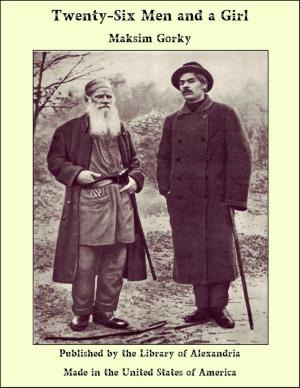Under the Stars and Bars: Memories of Four Years Service with the Oglethorpes of Augusta, Georgia
Nonfiction, Religion & Spirituality, New Age, History, Fiction & Literature| Author: | Walter A. Clark | ISBN: | 9781465557612 |
| Publisher: | Library of Alexandria | Publication: | July 29, 2009 |
| Imprint: | Library of Alexandria | Language: | English |
| Author: | Walter A. Clark |
| ISBN: | 9781465557612 |
| Publisher: | Library of Alexandria |
| Publication: | July 29, 2009 |
| Imprint: | Library of Alexandria |
| Language: | English |
EARLY HISTORY OF THE OGLETHORPES. On a winter's day in '51, in the old Capital at Milledgeville, Ga., Howell Cobb, then Governor of Georgia, gave his official sanction to an Act of the General Assembly incorporating a new military organization in the City of Augusta. If he had been told that ten years from that date he would be wearing the wreath of a Brigadier General in actual war and that the Company, to which his signature had given legal existence would be camped on Virginia soil, attached to the command of an officer, who will go down into history as one of the greatest captains of the ages, he would have smiled at the statement as the outgrowth of a distempered fancy. And yet such a prophecy would have found literal fulfilment. In honor of the founder of the Georgia Colony the Company was named the Oglethorpe Infantry. Hon. Andrew J. Miller, was its first commander. Representing some of the best blood of one of the most cultured cities of the Old South, the company, by its proficiency in drill and its military bearing soon gained a distinguished position among the citizen soldiery of the State. On the death of Capt. Miller in 1856, Judge Ebenezer Starnes was chosen to succeed him. He, in time, was followed by John K. Jackson, afterwards a Brigadier General in the Confederate Army. During the captaincy of the last named, the volunteer companies of the State were ordered into camp at Milledgeville, Ga., by Gov. Herschel V. Johnson. Capt. Jackson, on account of illness in his family, could not attend and the Oglethorpes were commanded by Lieut. J. O. Clark. In the military drill and review, that occurred during the encampment the Oglethorpes presented the best marching front of any company present. Mr. Frank H. Miller, then Orderly Sergeant, attributes their success on this line, in part at least to the fact that nature had failed to endow him with a full share of what my father was wont to term "legability," and his shortened step, as Company Guide, rendered it an easier task for his comrades marching in column of companies to preserve their alignment. On the organization of the Independent Volunteer Battalion in 1857, Capt. Jackson was elected Lieut. Col., and Lieut. J. O. Clark succeeded to the captaincy, retaining the position until the Company was mustered into the Confederate service in 1861. Of the original roll as organized in 1851, if my information is correct, only Mr. William Richards now survives. Capt. Horton B. Adams, who died during the present year (1899) was the last surviving member of the original roll, who retained active connection with the Company from its organization until its enlistment in the Confederate Army
EARLY HISTORY OF THE OGLETHORPES. On a winter's day in '51, in the old Capital at Milledgeville, Ga., Howell Cobb, then Governor of Georgia, gave his official sanction to an Act of the General Assembly incorporating a new military organization in the City of Augusta. If he had been told that ten years from that date he would be wearing the wreath of a Brigadier General in actual war and that the Company, to which his signature had given legal existence would be camped on Virginia soil, attached to the command of an officer, who will go down into history as one of the greatest captains of the ages, he would have smiled at the statement as the outgrowth of a distempered fancy. And yet such a prophecy would have found literal fulfilment. In honor of the founder of the Georgia Colony the Company was named the Oglethorpe Infantry. Hon. Andrew J. Miller, was its first commander. Representing some of the best blood of one of the most cultured cities of the Old South, the company, by its proficiency in drill and its military bearing soon gained a distinguished position among the citizen soldiery of the State. On the death of Capt. Miller in 1856, Judge Ebenezer Starnes was chosen to succeed him. He, in time, was followed by John K. Jackson, afterwards a Brigadier General in the Confederate Army. During the captaincy of the last named, the volunteer companies of the State were ordered into camp at Milledgeville, Ga., by Gov. Herschel V. Johnson. Capt. Jackson, on account of illness in his family, could not attend and the Oglethorpes were commanded by Lieut. J. O. Clark. In the military drill and review, that occurred during the encampment the Oglethorpes presented the best marching front of any company present. Mr. Frank H. Miller, then Orderly Sergeant, attributes their success on this line, in part at least to the fact that nature had failed to endow him with a full share of what my father was wont to term "legability," and his shortened step, as Company Guide, rendered it an easier task for his comrades marching in column of companies to preserve their alignment. On the organization of the Independent Volunteer Battalion in 1857, Capt. Jackson was elected Lieut. Col., and Lieut. J. O. Clark succeeded to the captaincy, retaining the position until the Company was mustered into the Confederate service in 1861. Of the original roll as organized in 1851, if my information is correct, only Mr. William Richards now survives. Capt. Horton B. Adams, who died during the present year (1899) was the last surviving member of the original roll, who retained active connection with the Company from its organization until its enlistment in the Confederate Army















